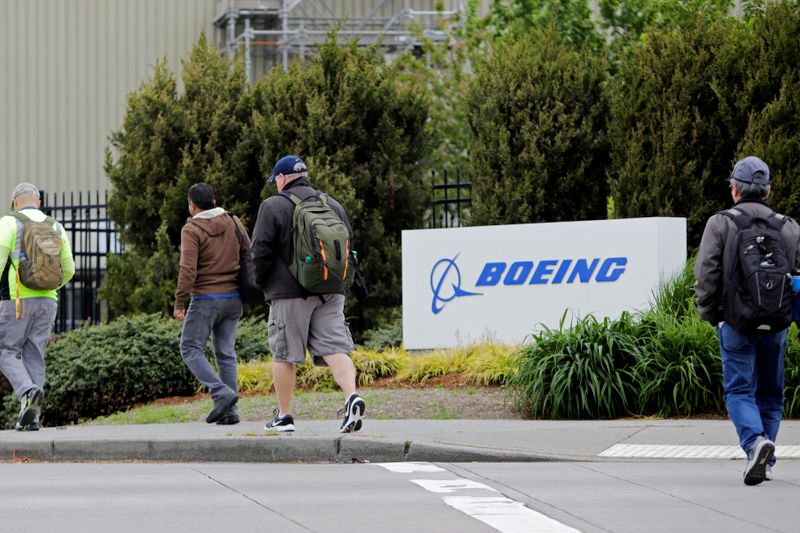This post was originally published on this site
https://i-invdn-com.akamaized.net/trkd-images/LYNXMPEGBF191_L.jpg
SEATTLE (Reuters) – Boeing (NYSE:BA) Co said on Wednesday it was suspending annual merit salary increases in 2021 for most employees, managers and executives, as the embattled U.S. planemaker grapples with fallout from the coronavirus pandemic and 737 MAX crisis.
Boeing also said it was awarding employees – excluding executives and tens of thousands of engineers and machinists covered by union contracts – a one-time grant of Restricted Stock Units (RSUs), determined by level.
The mixed bag of news, delivered just before the U.S. holiday break in a memo to employees from Chief Executive Dave Calhoun, caps a year in which Boeing has shed thousands of jobs and cut production as it looks ahead to a recovery still years away.
“The next chapter of our history will be built on a culture of excellence anchored by shared accountability and ownership,” Calhoun told employees.
The grant, the first of its kind at Boeing in recent memory, will be awarded to about 82,000 employees and will vest three years from the grant date on Tuesday, Calhoun said.
Boeing said days earlier that it was cutting production of its 787 Dreamliner for the fourth time in 18 months after posting zero deliveries in November, as recent production flaws compound delays from the COVID-19 crisis.
The pandemic decimated air travel and jet demand just as Boeing was working to win regulatory approval to return its best-selling jet, the 737 MAX, to the skies after a worldwide ban following crashes in Ethiopia and Indonesia that killed 346 people.
The MAX is expected to resume U.S. service later this month following flights in Brazil and Mexico.
In late October, Boeing said it was eliminating about 30,000 jobs to reach a workforce around 130,000 by end-2021 – thousands more than previously discussed.
Calhoun has predicted airline traffic would end the year at around 30% to 35% of 2019 levels, with a return to pre-pandemic levels in about three years.
“I know we will emerge from this a better company, one that is recognized for safety, transparency and quality,” Calhoun told employees.


